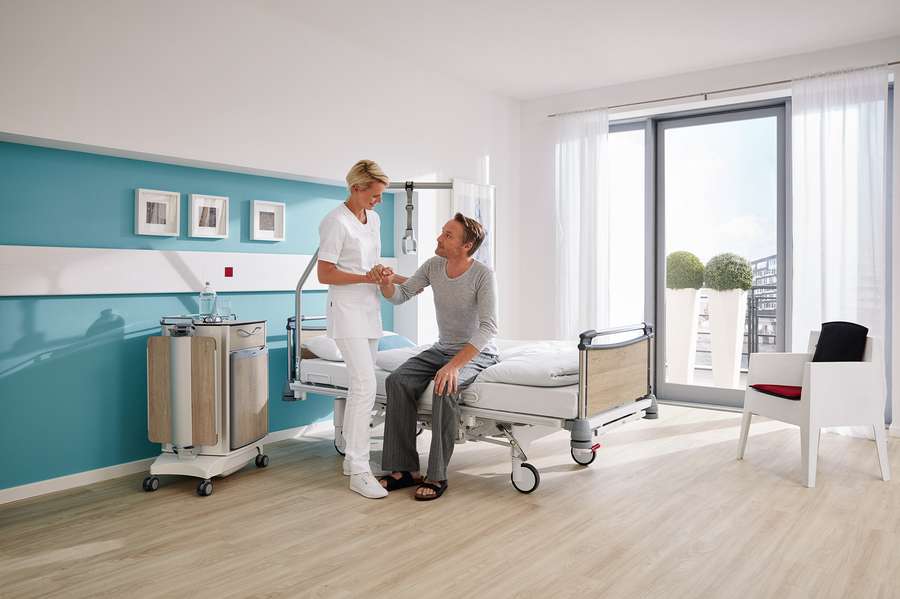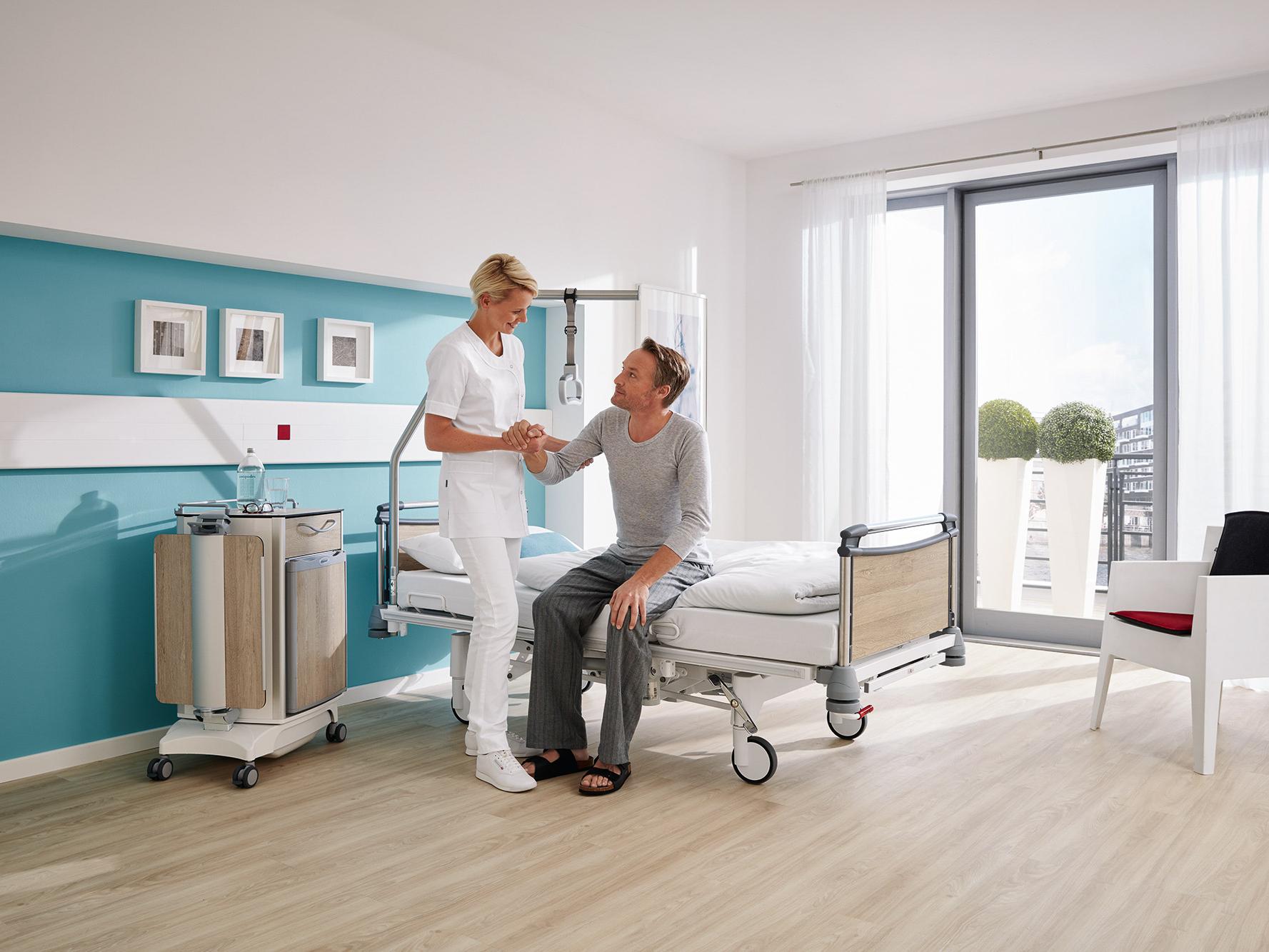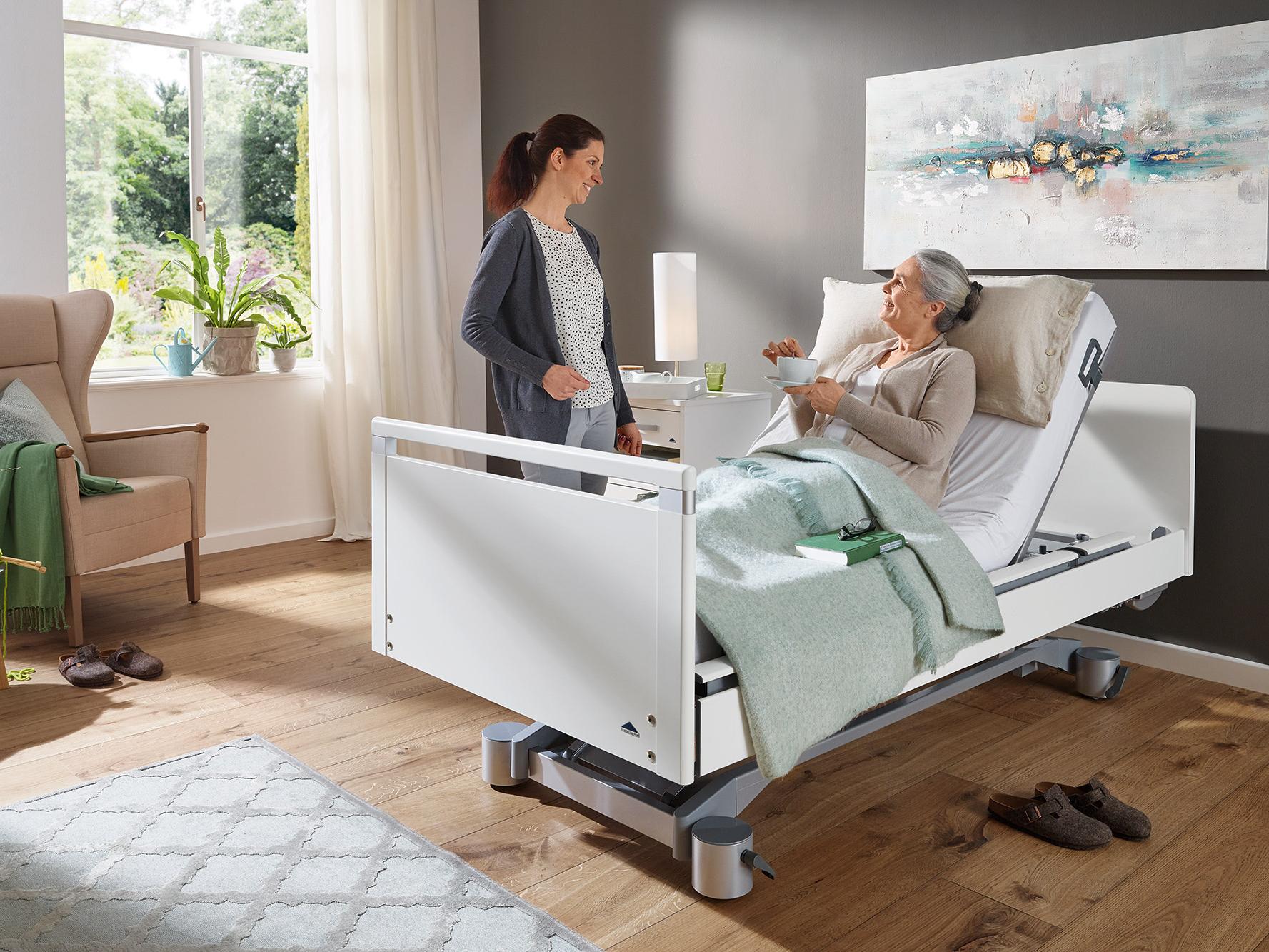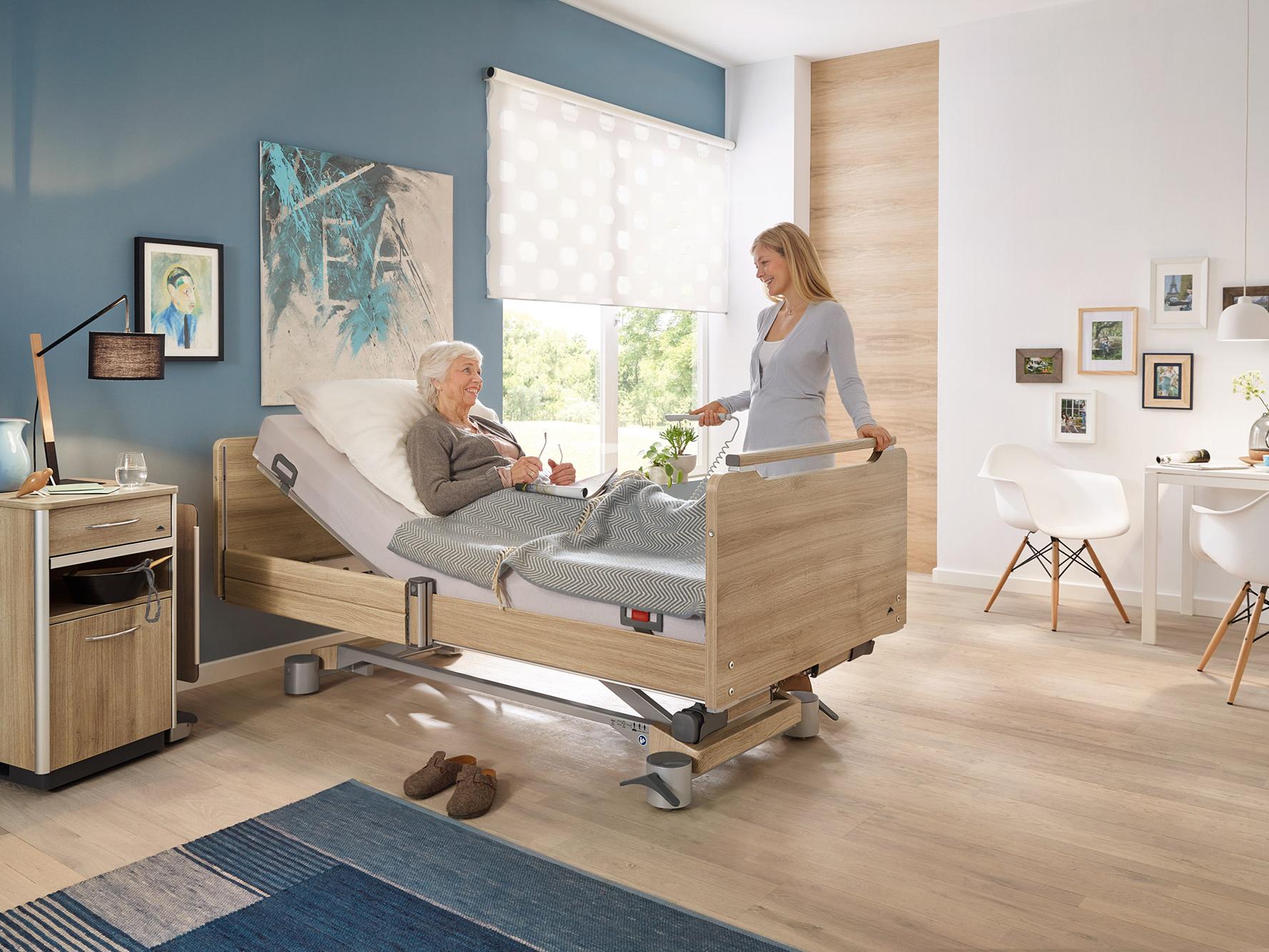
Relief or burden for nursing and geriatric care?
Discussions about the new law to strengthen nursing staff in Germany
On 9 November 2018, the German Bundestag passed the law on strengthening nursing staff (PpSG). The aim of this law is to noticeably improve the everyday lives of care staff in nursing and geriatric care. Several steps have been taken to improve staffing and working conditions, most of which will come into force at the beginning of this year. "As of 01.01.2019, hospitals and long-term care facilities can hire new nursing staff. Because we ensure that the health insurance companies finance 13,000 nurse positions in geriatric care and every additional nurse in the hospital," announced Federal Health Minister Jens Spahn.1)
The distribution of the promised 13,000 positions in geriatric care depends on the number of residents in the care facilities, ranging from half a position for less than 41 residents to two positions for more than 120 residents.1) However, these additional positions must be filled by trained nurses. If, despite intensive efforts, this does not succeed within four months, a nursing assistant, training to be a nurse, can also be hired. There is no limit on the funds to refinance each additional and increased nursing position in the hospital. Also, the usual ten percent co-payment of the hospitals is omitted. The funds are, however, mandatory earmarked for nursing positions close to the bed.
In addition to the increase in nursing staff in hospitals and care facilities announced by Jens Spahn, the nursing profession should become more attractive. So, for example, half of the costs of measures taken to better reconcile care, family and work have been covered over a six-year period by funders. Workplace health promotion is also supported to a greater extent by obliging health insurance companies to spend more than € 70 million a year specifically on such services.1) In addition, measures to cover "special care needs" for health care and geriatric care professionals should be financially supported for six years. These include e.g. child care needs outside the usual kindergarten opening hours.
However, not all steps adopted in the PpSG are well received. In particular, the defined minimum staff levels, which should actually ensure an improvement in nursing care in the hospital, are criticized by several bodies, e.g. the German Nursing Council (DPR), the German Hospital Association (DKG) and the German Professional Association for the Nursing Professions (DBfK). The minimum limits are defined as the maximum number of patients per nurse and apply to four care-intensive wards in the hospital:
ICU
during the day shift a maximum of 2.5 patients per nurse 2)
during the night shift a maximum of 3.5 patients per nurse 2)
Geriatrics
during the day shift 10 patients per nurse 2)
during the night shift 20 patients per nurse 2)
Cardiology
during the day shift 10 patients per nurse 2)
during the night shift 20 patients per nurse 2)
Trauma surgery
during the day shift 12 patients per nurse 2)
during the night shift 24 patients per nurse 2)
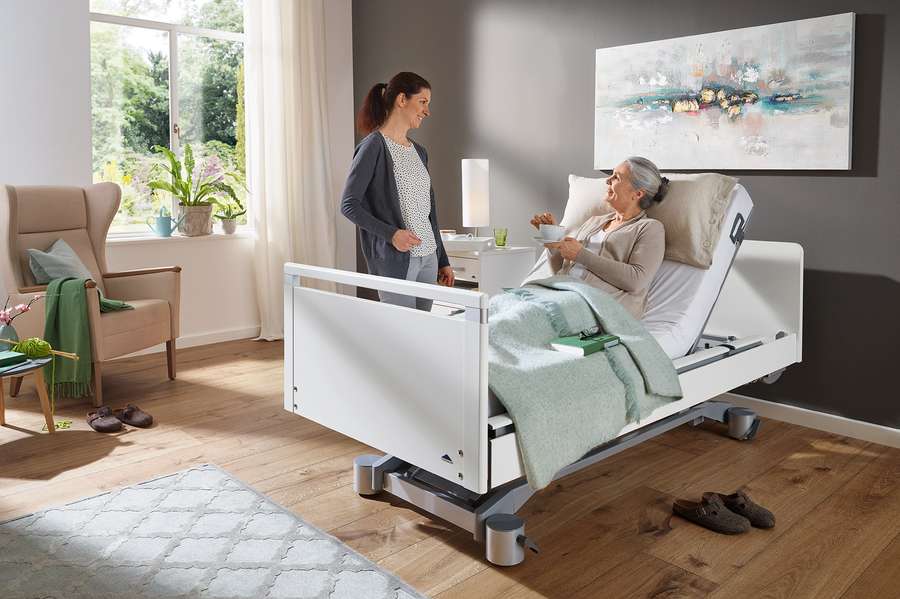
In addition, a threshold was also set for the proportion of nursing assistants among nursing staff. The Federal Ministry of Health justified the determination of the minimum staff levels with the failure of the negotiations between hospitals and health insurance companies. "Since July of last year, the lobbyists of hospitals and health insurances have been mandated to set minimum staff levels for nursing-intensive hospital wards. These negotiations have failed. This failure of self-government requires our actions to protect patients and caregivers," said Jens Spahn.1) Hospitals that do not comply with the guidelines must expect deductions in compensation. Critics fear, among other things, a shortage of treatment capacity in intensive care units as well as the withdrawal of nurses from other hospital wards, for which no lower limits apply. "Many intensive care units will no longer be able to accept additional patients because otherwise they will no longer meet staffing requirements," Dr. Gerald Gaß, President of the German Hospital Association3). He also pointed out that the existing shortage of skilled nurses is publicly known, and the hospitals are not consciously refraining from recruiting new skilled nursing staff.
The so-called "immediate care program" contains numerous further steps with which the Federal Ministry of Health would like to facilitate nursing and geriatric care. An overview, in German, can be found on the website of the Federal Ministry of Health.
Sources (only in German):
1) https://www.bundesgesundheitsministerium.de/sofortprogramm-pflege.html#c13145
2) https://www.bundesgesundheitsministerium.de/personaluntergrenzen.html
3) https://www.rechtsdepesche.de/kritische-meinungen-zur-festlegung-der-personaluntergrenzen/
https://www.rechtsdepesche.de/personaluntergrenzen-verfehlen-ihr-ziel/

